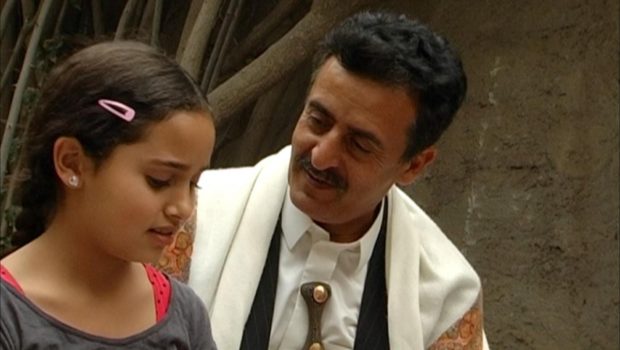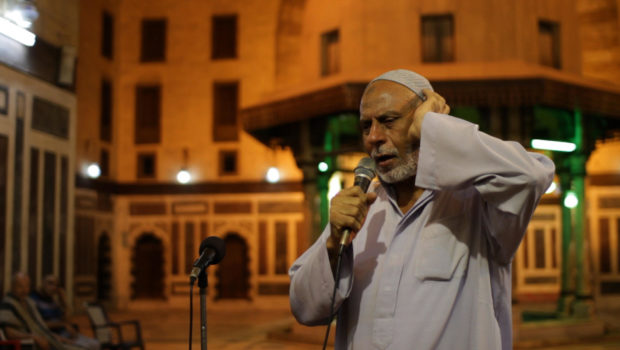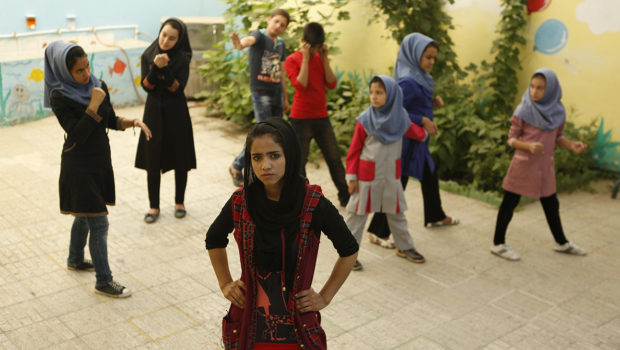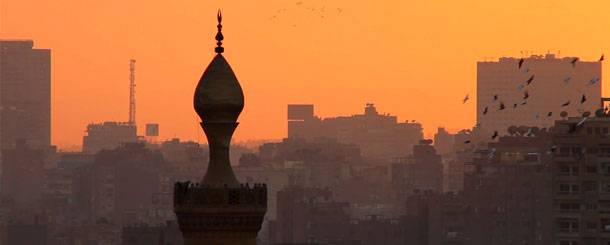Since the presidential election in November, a number of Champaign-Urbana organizations have hosted events and protests to take a stand against the conservative policies being rolled out by the Trump administration and to foster discussion about social justice issues that affect the community. In May, the Art Theater will participate in an international film series called The Seventh Art Stand, a cinematic act of solidarity against Islamophobia and the travel ban. Amidst all of the mainstream media noise about terrorism and something called “constitutionality,” the series seeks to broadcast the voices and experiences of those most affected by the travel ban: muslims from the Middle East. I talked with Art Theater General Manager Austin McCann to find out more.
All of the movies are documentaries: Cairo in One Breath, a U.S./Egypt co-production about the religious politics surrounding the Adhan, or Muslim call to prayer; Sonita, about an 18-year old aspiring rapper from Afghanistan living as a refugee in Iran who seeks to escape arranged marriage through her art; and a double feature by Yemeni-Scottish director Sara Ishaq, in which both films explore Yemen at the point of its revolution during the Arab spring. Karama Has No Walls looks at participants of the “Friday of Dignity” uprising, while The Mulberry House is a portrait of Ishaq’s own family. The films will screen on the 2nd, the 9th, and the 16th of May, respectively. Showings begin at 7 p.m. followed by post-show discussions with members of the Muslim American society, the Center for South-East Asian and Middle Eastern Studies, and UNESCO on campus, among others.

The Mulberry House (2013)
According to McCann, the movies were chosen specifically because they showcase the everyday lives of Muslims in the Middle East rather than repeating narratives about the horrors of war: “If I’m programming movies about particularly marginalized people, or people who are subject to violent oppression, I want to be sensitive to the power dynamics involved…I want to show the lives of those people in a way that doesn’t just satisfy tired cliches, but that represents them as people.” Media representation is important, and sometimes it’s a matter of which representations get broadcast to wider audiences. As Austin says, “At least a few of these films I had seen in other places and had wanted to program, but didn’t know if I could get an audience; this was a nice opportunity.”

Cairo in One Breath (2015)
Each of the documentaries is interesting in its own way. Cairo in One Breath, which has won the Best of Fest award at multiple festivals in the past six months, looks at the Adhan at a time of transition. In 2010, the Mubarak regime instituted a unified adhan, a single call from a Muezhin broadcast from a central studio to a network of mosques. Due to political unrest, the project is in a state of flux — many Muezhins have been replaced, and some remain at the mosques to perform the Adhan when the broadcast system goes down. Says McCann, “The arguments between the Muezhins and the state about the relationship between politics and religious practice were amazing to me.” Sonita, which won the 2015 Sundance Grand Jury prize, shows acclaimed Iranian director Rokhsareh Ghaem Maghami going from passive observer to an active participant and advocate in Sonita’s life. According to McCann, ‘Sonita is an utter crowd pleaser, and a very complex one that leads to great discussions in addition to its laughs and tears.”

Sonita (2015)
This series comes on the tail of the Art Theater’s successful Affirmation & Resistance: Black World Film Series, which explored black cinema and black life. McCann says that he is a political person, and the political programming he initiated in 2014, early on in his role as general manager, made him feel comfortable that audiences would respond well. “The election made people hungry for something radical in a way that was super convenient for me.” In June, the Art Theater will host its second annual Cinema Judaica, a collaboration with the Champaign-Urbana Jewish Federation.
<span 0.875em;”=””>As our administration pushes for increased isolationism, this is an opportunity to connect with the experiences and perspectives of people from other parts of the world. And as McCann says, “It’s essential to support venues like the art theater that support a political vision.” So come to the Art in May and expand your horizons via these amazing films.








